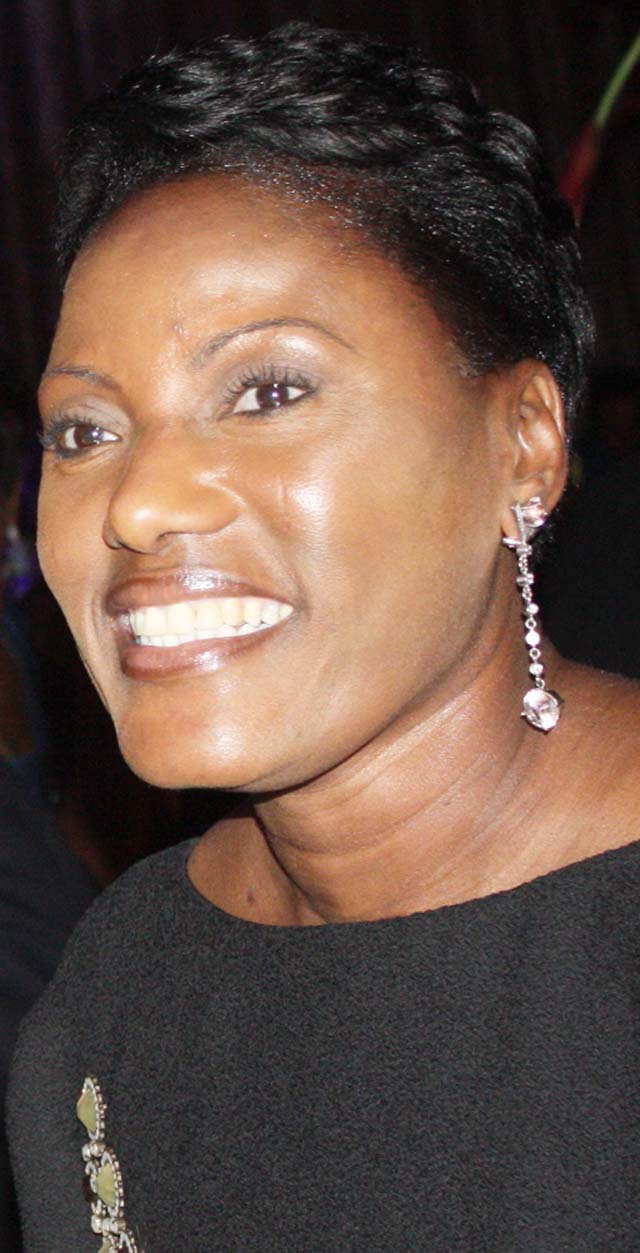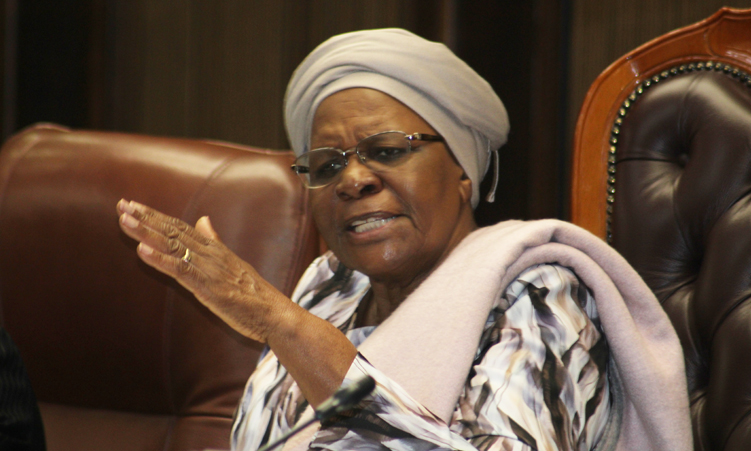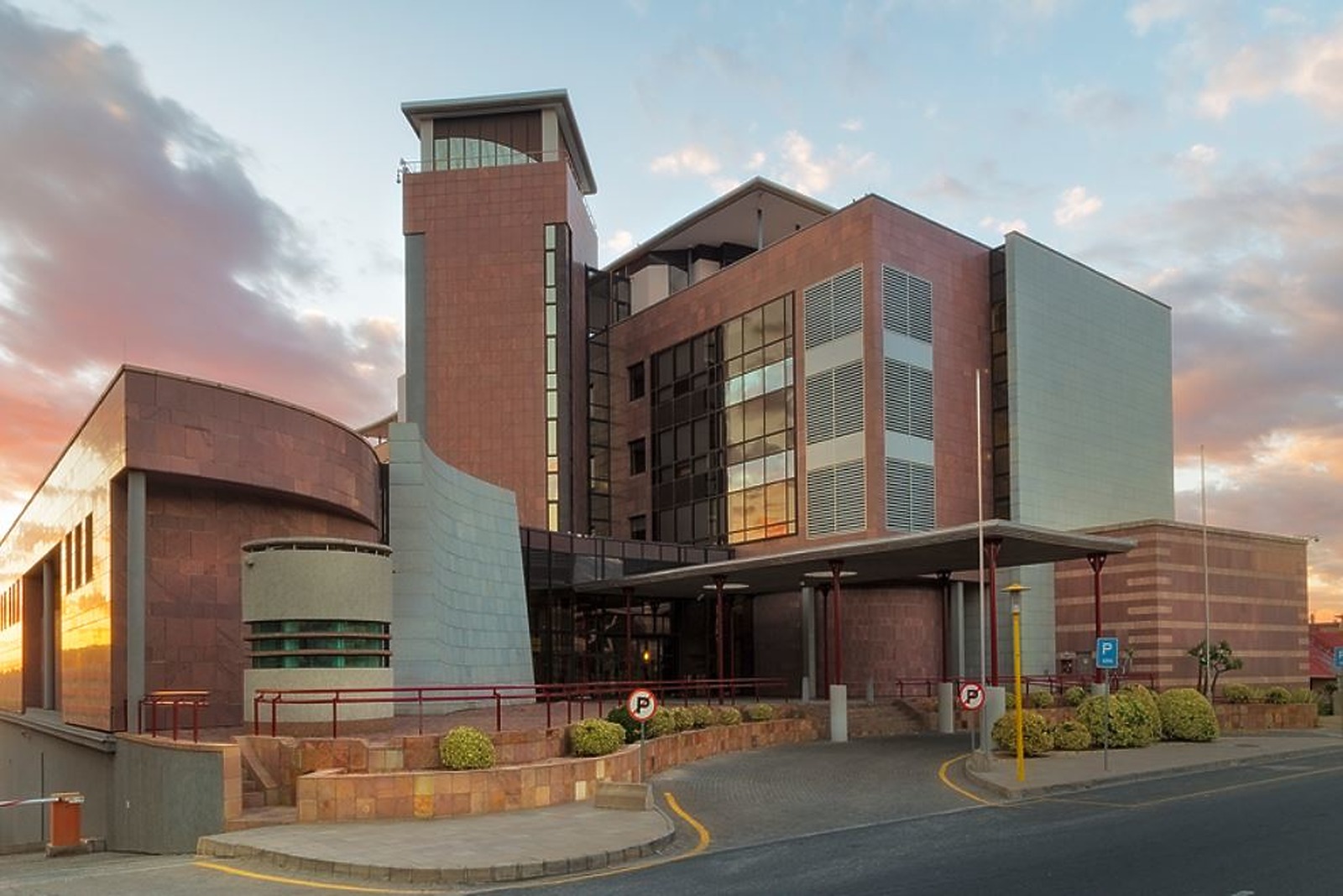THE sale of 4,600 square metres of land in the central business district [CBD] in Windhoek earlier this month by United Africa Group to the First National Bank for a princely sum of about N$40 million has raised eyebrows within the municipality and among property developers.
The City of Windhoek sold the land to United Africa Group five years ago for N$10 million on the understanding that the group would develop the area into a mega shopping and residential district, which the company dubbed the Eliakim Namundjebo Plaza, named about the father of UAG owner, Martha Namundjebo-Tilahun.
The sale of the 2.4 hectare plot had attracted a lot of criticism already from different quarters, including some complaint about public open space being closed up with mortar and concrete in the city.
The prime plot is popularly known as the OK parking area – a block more than the size of two soccer fields sandwiched between an area that includes Namibia’s oldest shopping mall (Gustav Voigts centre) and the Kalahari Sands to the west, the Zoo park to the north, the Supreme Court to the east and the municipality offices to the south.
The UAG had set up only the Hilton hotel but it has now emerged that they had cut up the plot in several portions, from which FNB bought a small part. It is unclear whether the ramaining two hectares were up for sale too.
The Chief Executive Officer at City of Windhoek Niilo Taapopi on Friday confirmed that the city council approved the sale with conditions on the land they sold in 2004. He said the main condition is that UAG should consult the council if they wanted to sell the land or part of it.
Taapopi said several councillors were concerned about the latest proposal to sub-divide and sell the prime city land, that the city now realised they got rid off for a ‘song’ after responding to a private request for the sale in the mid-1990s.
Taapopi said there was no vote on the decision to grant UAG the green light to sell, however, councillors were allowed to register their concerns in writing. He said some councillors were concerned what would happened to UAG’s plan to fully develop the area as they had expected it to be done without selling parts of the land.
The Namibian has established that the land was sub-divided into nine portions of 3107 square metres (m2), 1707m2, 8764m2, 2699m2, 2699m2, 3321m2, 3166m2, 4750m2 and 4593m2.
According to the CEO, councillors who were not impressed about how the City dealt with the sale agreement as they felt the council could have gotten a better deal.
“That was especially those councillors who just came in two or three years ago,” Taapopi said, adding that if UAG violates the agreement “they will be called to order”.
Mayor Agnes Kafula, who became councillor the same year the land was sold and has served council since then, declined to comment yesterday.
Councillor Elaine Trepper, a former mayor of the city yesterday admitted that there were mixed feelings in the council about the deal. She declined to comment further on the disagreements but said “what is important is that we agreed at the end”.
UAG’s chairperson and co-owner Martha Namundjebo-Tilahun on Friday tried to rubbish The Namibian’s information that the land was sold for N$40m, saying they did not sell any portion of the land.
Namundjebo-Tilahun said FNB’s plan to build its N$425 million headquarters is part of UAG’s “billion dollar” plan to develop the area by 2018, referring to it as “mixed-use development”.
The N$2 billion Namundjebo Plaza promised to create employment and state-of-the art-residential facilities and offices but the UAG’s executive director said the plans won’t be affected by the sale of the portion to FNB.
“Even if it’s N$30 million or N$100 million, it’s not about the land deal but the developmental benefits that will come,” she said.
Namundjebo-Tilahun who is also the president of Namibia Chamber of Commerce and Industry (NCCI) criticised The Namibian for “just reporting” about land deals involving black people while plots bought by whites are not probed.
She said that she had worked hard for their business empire and, unlike some businesspeople, she is not a “tenderpreneur”.
The Namibian has reported about well-connected individuals acquiring prime land relatively cheap from local authorities, through private sales, while often ordinary people had to rely on public auctions to get residential land. The United Africa Group is one of the companies that seem to have amassed prime city land covering business interests in hospitality, real estate and mining.
According to its website, the company prides itself of owning “many properties located in strategic areas of industrial zones” in Windhoek, Ondangwa and Oshakati. Some of the well-known UAG properties in Windhoek are: Gutenberg Plaza, Capital Centre Building and Independence Building, which are all in the CBD.
Land deal history
The OK parking lot has been the subject of controversy since as far back as 1995. That year, a Malaysian company called Freedom Square bought the property with promises to put up massive developments, but after entering a preliminary deed of sale agreement with the municipality for N$15 million and paying N$2 million as deposit, the plans fell through.
The Malaysian company was bought by UAG in 2004 and the prime plot was sold to UAG’s subsidiary company Freedom Square in 2004 for N$10m.
The land was only officially transferred in May 2008 after reports that UAG were in arrears of about N$90,000. The land was supposed to be paid in 20 quarterly installments since 2004, but the company had requested for 26 installments. The same year, UAG paid N$3.1 million in arrears for outstanding rates and taxes.
The Namibian has it on good authority that UAG has over the past years used the plot as collateral to raise money, including a loan of more than N$170m from ABSA bank.
Stay informed with The Namibian – your source for credible journalism. Get in-depth reporting and opinions for
only N$85 a month. Invest in journalism, invest in democracy –
Subscribe Now!










